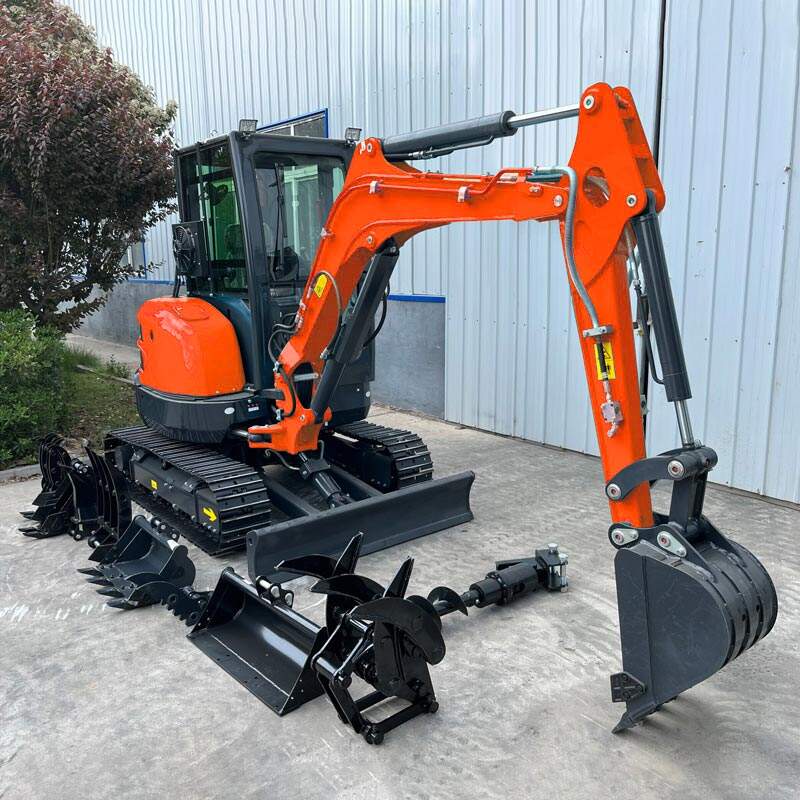Excavators have long been essential in construction, mining, and various other heavy industries due to their versatility and efficiency. As technology continues to evolve, excavators have seen significant advancements that have improved their performance, safety, and productivity. These technological innovations not only make excavators more effective but also contribute to the overall success and efficiency of job sites. In this article, we will explore how technology has impacted excavator productivity.
Automation and Advanced Control Systems
One of the most groundbreaking technological advancements in modern excavators is automation. Excavators now come equipped with advanced control systems that allow for more precise movements. These systems can automate tasks such as digging, lifting, and leveling, reducing the need for manual input from the operator. Automation increases the speed and accuracy of operations, resulting in faster completion times for projects. Operators can also focus on overseeing operations rather than constantly adjusting controls, leading to improved overall productivity.
Telematics and Data Analytics
Telematics, the technology that allows for remote monitoring of machine performance, has become a game-changer for excavator productivity. By utilizing GPS tracking, sensors, and other devices, operators and fleet managers can monitor the performance of excavators in real-time. This data provides valuable insights into fuel consumption, machine hours, operational efficiency, and potential issues. With the ability to monitor performance remotely, operators can make data-driven decisions that improve efficiency, reduce downtime, and increase machine lifespan. Predictive maintenance, enabled by telematics, can prevent costly breakdowns and ensure the excavator is always operating at peak performance.
Improved Fuel Efficiency
Fuel costs are one of the biggest expenses associated with excavators, but advancements in engine technology have made modern excavators far more fuel-efficient. Newer engines, combined with smart hydraulic systems and load-sensing technology, automatically adjust the machine's power usage based on workload. This ensures that the excavator uses only as much fuel as needed for the task at hand. Operators can now work longer hours without frequent refueling, improving productivity and reducing operational costs.
Enhanced Safety Features
Technological advancements have also had a profound impact on the safety features of excavators, directly influencing productivity. With the introduction of backup cameras, proximity sensors, and collision detection systems, operators can navigate more efficiently, reducing the risk of accidents. Improved safety means fewer disruptions, fewer accidents, and less downtime, all of which contribute to higher productivity. These safety features help protect both the operator and those working around the excavator, creating a safer and more productive work environment.
Intelligent Excavator Attachments
The development of intelligent attachments has expanded the capabilities of excavators. Smart attachments like hydraulic hammers, buckets, and grapples can now be automatically adjusted based on the task. These attachments can sense the load and adjust their settings, improving efficiency and reducing wear and tear. For example, an intelligent bucket can adjust its capacity or digging angle depending on soil conditions, leading to faster excavation and less material wastage.
Operator Assistance Systems
Modern excavators are equipped with various operator assistance systems that help reduce operator fatigue and improve productivity. Features such as automatic leveling, grade control systems, and GPS guidance help operators maintain precise control over their tasks. These systems reduce the risk of errors, enhance efficiency, and allow operators to perform tasks at a faster rate while maintaining the quality of work.
In conclusion, the impact of technology on excavator productivity cannot be overstated. From automation and telematics to improved fuel efficiency and advanced safety features, technological innovations have transformed how excavators operate. These advancements not only make machines more efficient but also help reduce costs, improve safety, and enhance overall job site productivity. As technology continues to evolve, excavators will undoubtedly become even more efficient and effective in meeting the demands of the modern construction and mining industries.

 ONLINE
ONLINE